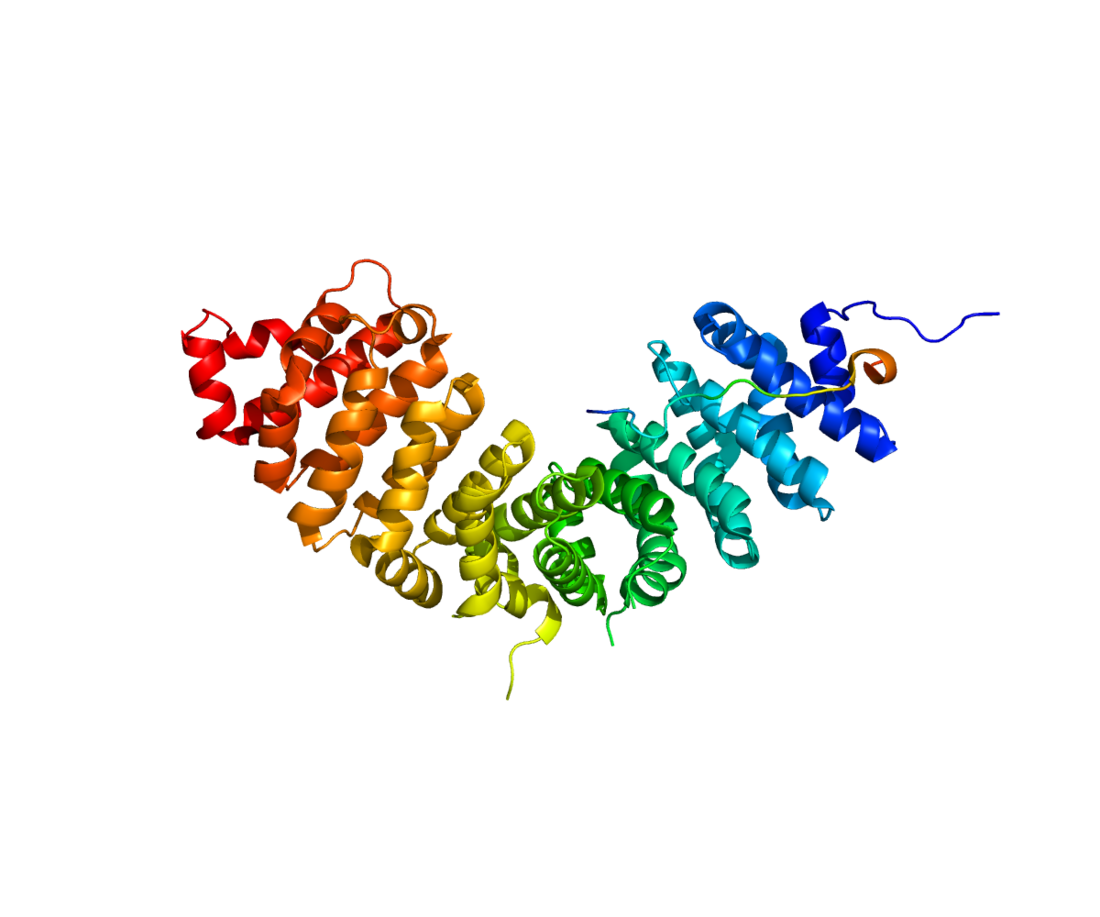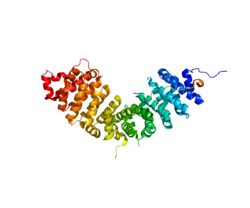P120 catenin
Protein found in humans From Wikipedia, the free encyclopedia
p120 catenin, or simply p120, also called catenin delta-1, is a protein that in humans is encoded by the CTNND1 gene.[5]
Function
This gene encodes a member of the Armadillo protein family, which function in adhesion between cells and signal transduction. Multiple translation initiation codons and alternative splicing result in many different isoforms being translated. Not all of the full-length natures of the described transcript variants have been determined.[6]
Clinical significance

Either loss or cytoplasmic localization of p120 is a common feature in the progression of several types of carcinoma.[7]
Interactions
CTNND1 has been shown to interact with:
See also
References
Further reading
External links
Wikiwand - on
Seamless Wikipedia browsing. On steroids.





